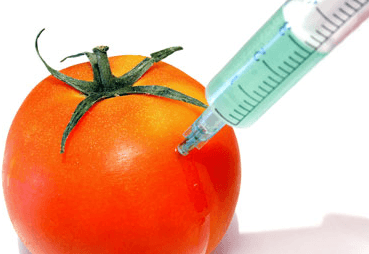Ghana MPs educated on relevance of GMOs
 Members of the Parliamentary Select Committee on Agriculture and Cocoa Affairs were on Friday sensitised on the importance of biotechnology and genetically modified organisms (GMOs) and how they could facilitate the advancement of the national economy.
Members of the Parliamentary Select Committee on Agriculture and Cocoa Affairs were on Friday sensitised on the importance of biotechnology and genetically modified organisms (GMOs) and how they could facilitate the advancement of the national economy.
They were taken through topics such as ‘Agricultural Biotechnology Research and Commercialisation: What are we doing in Ghana?’, ‘Biotechnology and the Making of Biotech/Genetically Modified Organisms (GMOs)’, ‘Policies and Socio-economic issues on Biotechnology: Concerns and Hopes for Ghana’, ‘Modern Biotechnology Regulations’, ‘Global Status of Biotech and Trade’ and ‘Ghana Biosafety Regulations and Laws’.
The workshop, organised by the National Biosafety Authority, is aimed at enhancing the knowledge and understanding of parliamentarians on Draft Biosafety and Biotechnology Regulations, in order to promote effective discussions and debate on the floor of Parliament when it comes before the House.
Mr Eric Okoree, the Chief Executive Officer of the National Biosafety Authority, in his welcome address, said GMOs had made immense contributions in the life of humanity across the globe, therefore the best strategy to ensure safe usage of GMO products in Ghana was to regulate them.
Professor Victor Agyeman, the Director-General of the Council for Scientific and Industrial Research, said the world was changing rapidly technologically, therefore as a country, we need to approach how to address health and safety issues differently.
He said hitherto, insulin was taken from animals and placed in humans but there were complaints about its safety, therefore insulin was taken from animal and placed in plants and refined before giving it to humans.
He said for the survival of mankind, we need to take drastic measures to include biotechnology in improving animal and plant products as well as in every aspects of human life.
Prof. Agyeman noted that, other developed countries like Japan, India, USA and others, were applying biotechnology to improve agriculture productivity, health delivery, pharmaceutical products and other aspects of their lives.
“Research drives development and until we change our attitudes towards GMOs and biotechnology, we will continue using our scarce resources to import basic goods like rice and maize.
“We need to promote science and research in the interest of national development,” he emphasised.
Prof. Agyeman said in America for instance, scientists had developed a technology that could identify genetic defects in foetus, therefore, they could remove it to correct the defects before the foetus develops into a full grown baby.
“If this thing had happened in Ghana, we will say it is God who created it so let’s leave it, but biotechnology requires some level of interventions and we need to do research to get the result before we talk about ethical considerations, we need to have a rethink about biotechnology as a country,” he said.
Dr Vivian Oduro, a Senior Research Scientist at the Ghana Atomic Energy Commission, said plant breeders could take genes of different crops to cross breed in order to produce new crop breeds, which could be disease resistant, with enhanced protein content and high yields.
She said scientists undertake risk assessment before one particular crop breed was accepted and promoted for cultivation, saying; “Genetic modified crops often produce higher yields than conventional ones”.
Dr Oduro said promotion of GM crops would increase yields of farmers and, therefore, wouldn’t spend financial resources to buy pesticides to spray insects because GM crops could resist insects’ infestations.
Source: GNA
